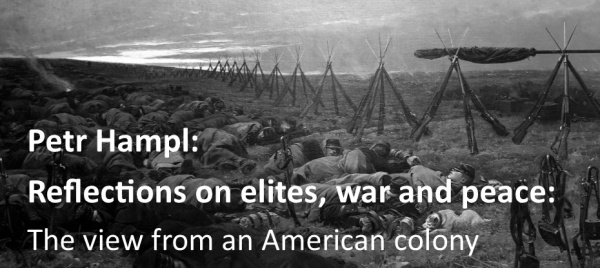“The success of a society depends on finding the right arrangement so that solidarity and mutual support prevail over competition, but at the same time each individual is motivated to work with ingenuity, etc.,” wrote anthropology professor Ivo Budil in his chapter in the anthology Sovereignty from the Right and the Left.
This is an insight absolutely crucial for all those thinking not only about emergency measures to solve acute problems, but also about a model of society that could replace the current disaster.
The success of a society depends on finding the right arrangement so that solidarity and mutual support prevail over competition.
Note that the anthropologist is not talking about a balance between solidarity and competition, but that solidarity must prevail. That is what psychological and economic studies say. I can refer the more thorough reader to the works of Bruno Frey and Daniel Kahneman, for example.
If all people receive the same reward, regardless of the outcome, it really does lead to passivity and laziness. That is, assuming that differently able and differently hard-working people do not enjoy different prestige. In fact, differences in prestige motivate at least as much as differences in financial rewards, more so.
When differences in remuneration increase, motivation also increases – but only up to a certain level. If a CEO is paid three times the workers’ wage or 20 times the workers’ wage, that no longer increases his motivation. On the contrary. From a certain point on, the higher the pay, the worse the performance. This is the case for most of today’s top managers. The inflated rewards motivate them to take extreme risks and focus on short-term gains. It is no longer the case that the CEO faces a dilemma between a job well done and profit. Profit prevails. As a result, this then means neglected maintenance, disrupted businesses and often creative accounting.
We see the difference on the battlefield, where the inability to supply equipment and ammunition in sufficient numbers is being compensated for by thousands and thousands of Ukrainian lives.
It means replacing good products with lousy ones and it means subverting the ability to produce. Military analyst Brian Berletic has brilliantly observed that we are unable to keep up with the Russian-Chinese alliance in Ukraine today because Western businesses have been focused on maximum profit for decades, while their businesses have been focused on maximum production. We see the difference on the battlefield, where the inability to supply equipment and ammunition in sufficient numbers is being compensated for by thousands and thousands of Ukrainian lives. We have profits for the rich and death for the poor, they have the ability to produce.
All indications are that the system that works most effectively is one where the differences are just enough to motivate effort and ingenuity, but not a dollar too high.
If the West wants to be a leading civilization and has something to offer the world, we should start thinking about how to get to that state, instead of constantly stirring up conflict and threatening missiles.


